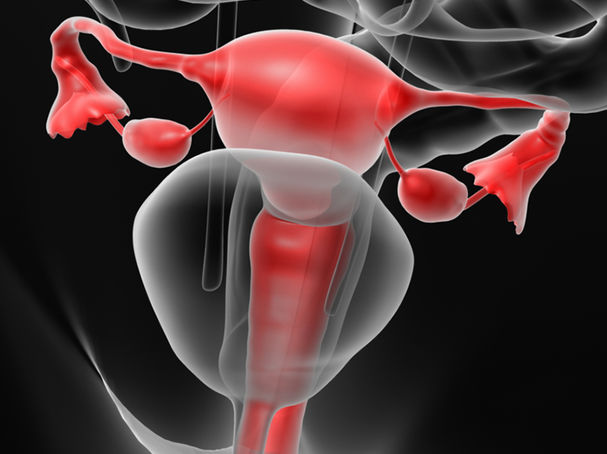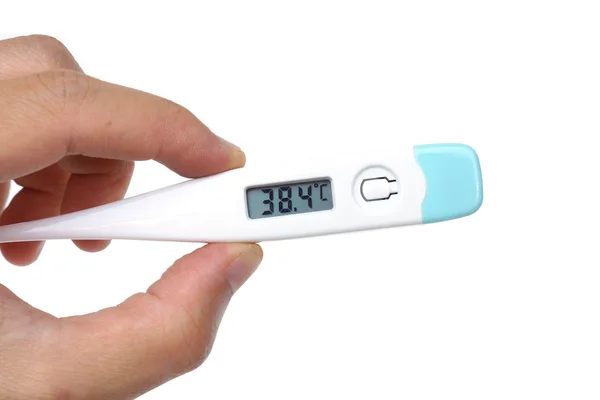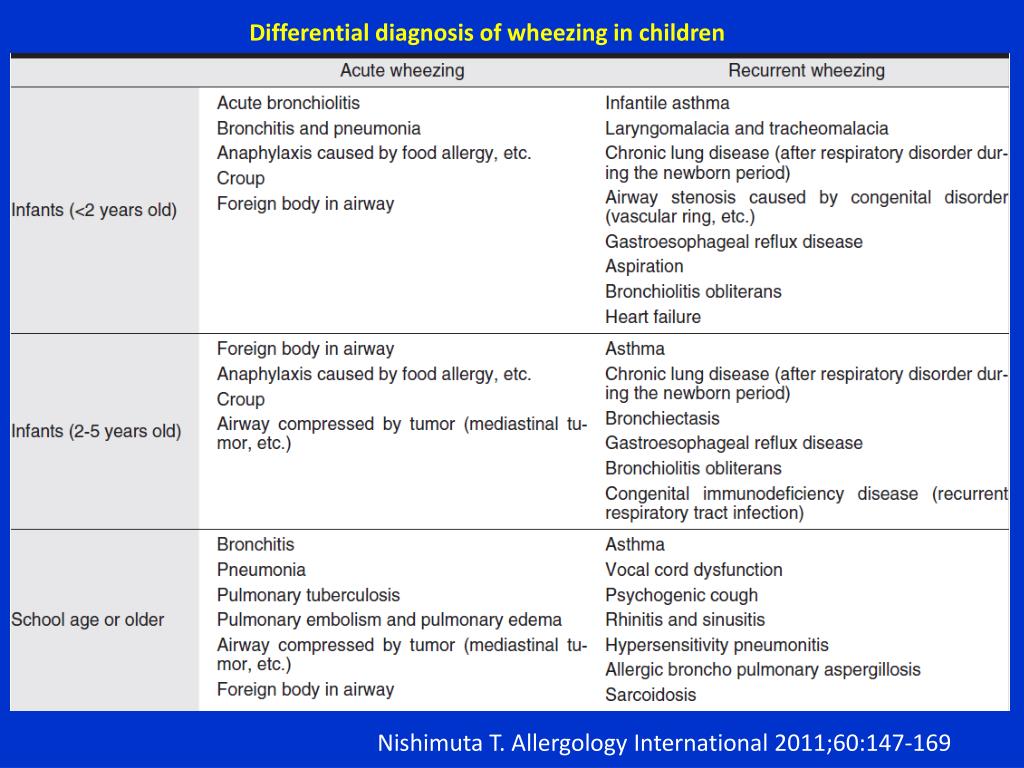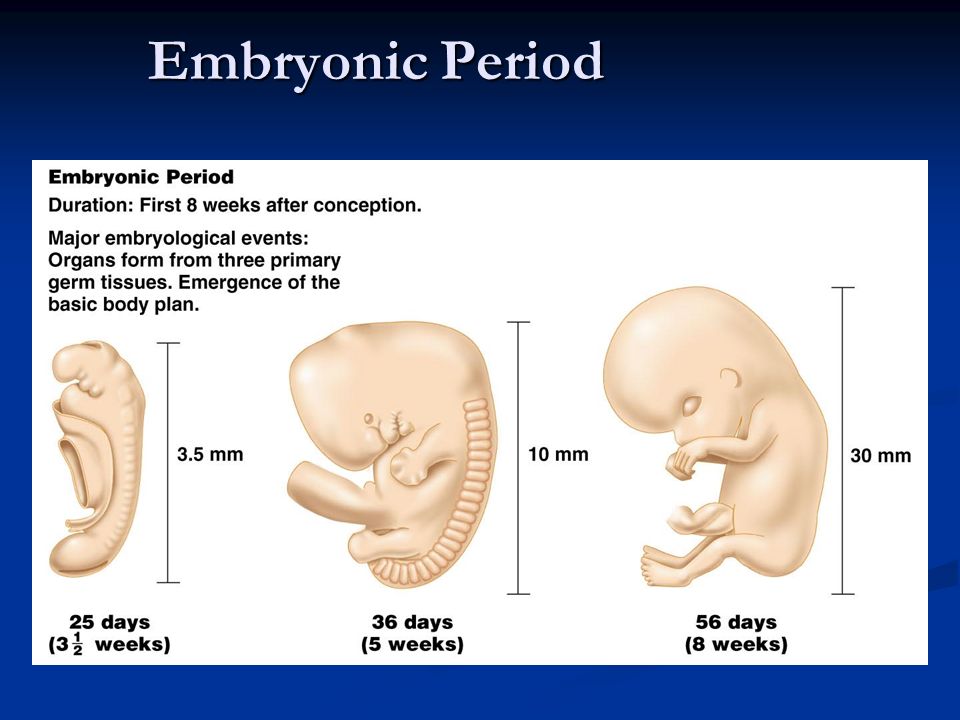Stomach acid during pregnancy
Indigestion and heartburn in pregnancy
Indigestion, also called heartburn or acid reflux, is common in pregnancy. It can be caused by hormonal changes and the growing baby pressing against your stomach.
You can help ease indigestion and heartburn by making changes to your diet and lifestyle, and there are medicines that are safe to take in pregnancy.
Symptoms of indigestion and heartburn
Symptoms of indigestion and heartburn include:
- a burning sensation or pain in the chest
- feeling full, heavy or bloated
- burping or belching
- feeling or being sick
- bringing up food
Symptoms usually come on soon after eating or drinking, but there can sometimes be a delay between eating and developing indigestion.
You can get symptoms at any point during your pregnancy, but they are more common from 27 weeks onwards.
Things you can do to help with indigestion and heartburn
Changes to your diet and lifestyle may be enough to control your symptoms, particularly if they are mild.
Eat healthily
You're more likely to get indigestion if you're very full.
If you're pregnant, it may be tempting to eat more than you would normally, but this may not be good for you or your baby.
Find out more about a healthy diet in pregnancy and foods to avoid.
Change your eating and drinking habits
You may be able to control your indigestion with changes to your eating habits.
It can help to eat small meals often, rather than larger meals 3 times a day, and to not eat within 3 hours of going to bed at night.
Cutting down on drinks containing caffeine, and foods that are rich, spicy or fatty, can also ease symptoms.
Keep upright
Sit up straight when you eat. This will take the pressure off your stomach. Propping your head and shoulders up when you go to bed can stop stomach acid coming up while you sleep.
Stop smoking
Smoking when pregnant can cause indigestion, and can seriously affect the health of you and your unborn baby.
When you smoke, the chemicals you inhale can contribute to your indigestion. These chemicals can cause the ring of muscle at the lower end of your gullet to relax, which allows stomach acid to come back up more easily. This is known as acid reflux.
Smoking also increases the risk of:
- your baby being born prematurely (before week 37 of your pregnancy)
- your baby being born with a low birthweight
- sudden infant death syndrome (SIDS), or "cot death"
There's lots of help available to stop smoking. Talk to your midwife or call the NHS Smokefree helpline on 0300 123 1044. Find out more about stopping smoking in pregnancy.
Talk to your midwife or call the NHS Smokefree helpline on 0300 123 1044. Find out more about stopping smoking in pregnancy.
Avoid alcohol
Drinking alcohol can cause indigestion. During pregnancy, it can also lead to long-term harm to the baby. It's safest to not drink alcohol at all in pregnancy.
Find out more about alcohol and pregnancy
When to get medical help
See your midwife or GP if you need help managing your symptoms or if changes to your diet and lifestyle do not work. They may recommend medicine to ease your symptoms.
You should also see your midwife or GP if you have any of the following:
- difficulty eating or keeping food down
- weight loss
- stomach pains
Your midwife or GP may ask about your symptoms and examine you by pressing gently on different areas of your chest and stomach to see whether it's painful.
If you're taking prescription medicines
Speak to your GP if you're taking medicine for another condition, such as antidepressants, and you think it may be making your indigestion worse. They may be able to prescribe an alternative medicine.
Never stop taking a prescribed medicine unless you're advised to do so by your GP or another qualified healthcare professional who's responsible for your care.
Medicines for indigestion and heartburn
Medicines for indigestion and heartburn during pregnancy include:
- antacids – to neutralise the acid in your stomach (some are available over the counter from a pharmacist)
- alginates – to relieve indigestion caused by acid reflux by stopping the acid in your stomach coming back up your gullet
You may only need to take antacids and alginates when you start getting symptoms.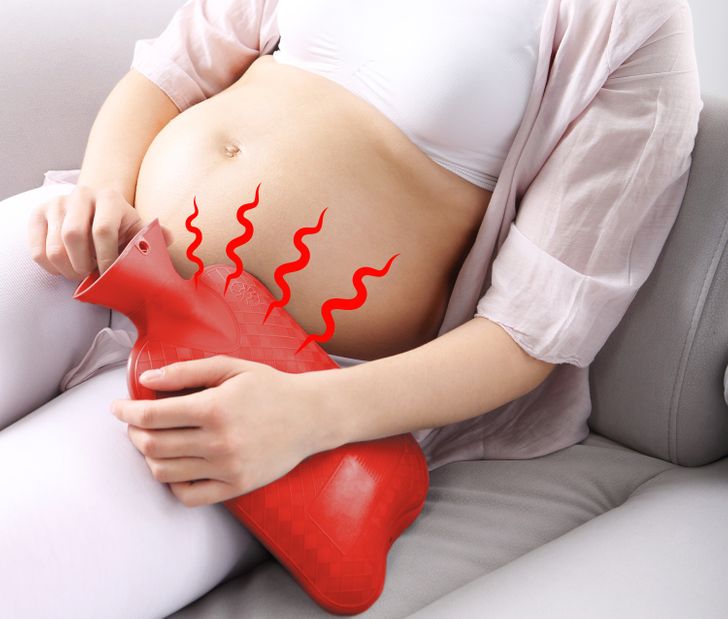 However, your GP may recommend taking them before symptoms come on – for example, before a meal or before bed.
However, your GP may recommend taking them before symptoms come on – for example, before a meal or before bed.
If you're taking iron supplements as well as antacids, do not take them at the same time. Antacids can stop iron from being absorbed by your body.
If antacids and alginates do not improve your symptoms, your GP may prescribe a medicine to reduce the amount of acid in your stomach. 2 that are widely used in pregnancy and not known to be harmful to an unborn baby are:
- ranitidine – a tablet you take twice a day
- omeprazole – a tablet you take once a day
Causes of indigestion in pregnancy
Symptoms of indigestion come when the acid in your stomach irritates your stomach lining or your gullet. This causes pain and a burning feeling.
When you're pregnant, you're more likely to have indigestion because of:
- hormonal changes
- the growing baby pressing on your stomach
- the muscles between your stomach and gullet relaxing, allowing stomach acid to come back up
You may be more likely to get indigestion in pregnancy if:
- you had indigestion before you were pregnant
- you've been pregnant before
- you're in the later stages of pregnancy
Video: Eating well on a budget
In this video, a dietitian gives advice on how to eat healthily on a budget.
Media last reviewed: 13 January 2021
Media review due: 13 January 2024
Heartburn, Acid Reflux, and GERD During Pregnancy
It’s called heartburn, although that burning feeling in your chest has nothing to do with the heart. Uncomfortable and frustrating, it bothers many women, particularly during pregnancy.
The first question you may have is how to make it stop. You may also wonder if treatments are safe for your baby. Learn what causes heartburn during pregnancy and what you can do about it.
During normal digestion, food travels down the esophagus (the tube between your mouth and stomach), through a muscular valve called the lower esophageal sphincter (LES), and into the stomach.
The LES is part of the doorway between your esophagus and your stomach. It opens to allow food through and closes to stop stomach acids from coming back up.
When you have heartburn, or acid reflux, the LES relaxes enough to allow stomach acid to rise up into the esophagus. This can cause pain and burning in the chest area.
This can cause pain and burning in the chest area.
During pregnancy, hormone changes can allow the muscles in the esophagus, including the LES, to relax more frequently. The result is that more acids may seep back up, particularly when you’re lying down or after you’ve eaten a large meal.
In addition, as your fetus grows during the second and third trimesters and your uterus expands to accommodate that growth, your stomach is under more pressure. This can also result in food and acid being pushed back up into your esophagus.
Heartburn is a common occurrence for most people at one time or another, but it doesn’t necessarily mean you’re pregnant. However, if you also experience other symptoms, such as a missed period or nausea, these could be signs that you need to take a pregnancy test.
Pregnancy increases your risk of heartburn or acid reflux. During the first trimester, muscles in your esophagus push food more slowly into the stomach and your stomach takes longer to empty.
This gives your body more time to absorb nutrients for the fetus, but it can also result in heartburn.
During the third trimester, the growth of your baby can push your stomach out of its normal position, which can lead to heartburn.
However, each woman is different. Being pregnant doesn’t necessarily mean you’ll have heartburn. It depends on many factors, including your physiology, diet, daily habits, and your pregnancy.
Relieving heartburn during pregnancy typically involves some trial and error. Lifestyle habits that can reduce heartburn are often the safest methods for mother and baby. The following tips may help relieve your heartburn:
- Eat smaller meals more frequently and avoid drinking while eating. Drink water in between meals instead.
- Eat slowly and chew every bite thoroughly.
- Avoid eating a few hours before bed.
- Avoid foods and beverages that trigger your heartburn. Typical culprits include chocolate, fatty foods, spicy foods, acidic foods like citrus fruits and tomato-based items, carbonated beverages, and caffeine.

- Stay upright for at least one hour after a meal. A leisurely walk may also encourage digestion.
- Wear comfortable rather than tight-fitting clothing.
- Maintain a healthy weight.
- Use pillows or wedges to elevate your upper body while sleeping.
- Sleep on your left side. Lying on your right side will position your stomach higher than your esophagus, which may lead to heartburn.
- Chew a piece of sugarless gum after meals. The increased saliva may neutralize any acid coming back up into the esophagus.
- Eat yogurt or drink a glass of milk to quell symptoms once they start.
Alternative medicine options include acupuncture and relaxation techniques, such as progressive muscle relaxation, yoga, or guided imagery. Always check with your doctor before trying new treatments.
Over-the-counter antacids such as Tums, Rolaids, and Maalox may help you cope with occasional heartburn symptoms. Those made of calcium carbonate or magnesium are good options.
However, it may be best to avoid magnesium during the last trimester of pregnancy. Magnesium could interfere with contractions during labor.
Most doctors recommend avoiding antacids that contain high levels of sodium. These antacids can lead to a buildup of fluid in the tissues.
You should also avoid any antacids that list aluminum on the label, as in “aluminum hydroxide” or “aluminum carbonate”. These antacids can lead to constipation.
Finally, stay away from medications like Alka-Seltzer that may contain aspirin.
Ask your doctor for the best option. If you find yourself downing bottles of antacids, your heartburn may have progressed to gastroesophageal acid reflux disease (GERD). In that case, you may need a stronger treatment.
If you have heartburn that often wakes you up at night, returns as soon as your antacid wears off, or creates other symptoms (such as difficulty swallowing, coughing, weight loss, or black stools), you may have a more serious problem that requires attention.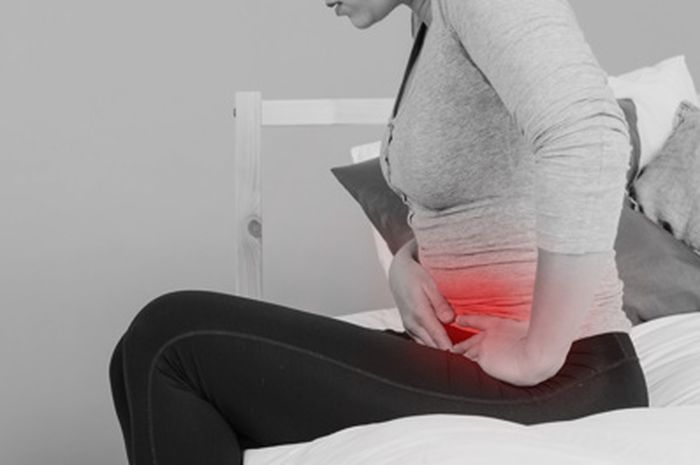
Your doctor may diagnose you with GERD. This means that your heartburn needs to be controlled to protect you from complications such as damage to the esophagus.
Your doctor may prescribe certain acid-reducing medications to reduce your symptoms. Research indicates that medications called h3 blockers, which help block the production of acid, appear to be safe.
Another type of medication, called proton pump inhibitors, is used for people with heartburn that doesn’t respond to other treatments.
If you’re concerned about the effects of medications, be sure to talk to your doctor. Doctors can help you control your symptoms while keeping your unborn child safe.
Article "Pregnancy and heartburn"
Hormonal changes that the body undergoes during pregnancy is the root cause of heartburn. In the early stages of pregnancy, the ovaries, and then the placenta, produce the hormone progesterone, one of the main functions of which is to relax the smooth muscles of the body, including the muscles of the uterus.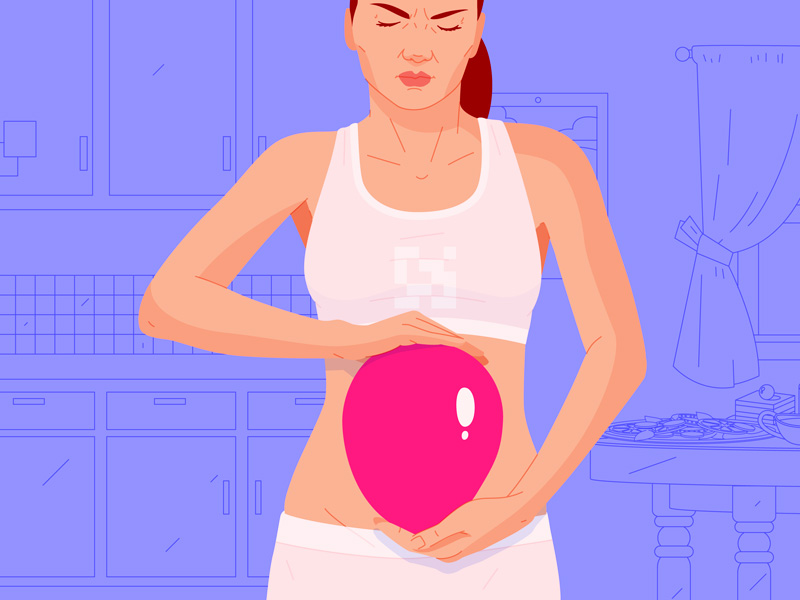 Similarly, progesterone acts on other smooth muscles in our body, for example, the muscles of the esophagus, stomach, and intestines. Progesterone also has a relaxing effect on the sphincters (circular muscles), the main task of which is to separate the various organs of the gastrointestinal system from each other. Relaxation of the esophageal-gastric sphincter leads to the fact that in pregnant women its lumen is open, and hydrochloric acid, which is produced by the stomach, can be thrown into the esophagus, which causes an unpleasant sensation of pain and burning - heartburn.
Similarly, progesterone acts on other smooth muscles in our body, for example, the muscles of the esophagus, stomach, and intestines. Progesterone also has a relaxing effect on the sphincters (circular muscles), the main task of which is to separate the various organs of the gastrointestinal system from each other. Relaxation of the esophageal-gastric sphincter leads to the fact that in pregnant women its lumen is open, and hydrochloric acid, which is produced by the stomach, can be thrown into the esophagus, which causes an unpleasant sensation of pain and burning - heartburn.
Another cause of heartburn in pregnant women is the weakening of motility - the wave-like movement of the gastrointestinal tract, slowing down the processes of digestion. Food passes through the digestive tract more slowly, lingering in the stomach. Heartburn in pregnant women is also provoked by the large size of the uterus, which increases intra-abdominal pressure and increases pressure on all the internal organs of the pregnant woman - the stomach and intestines as well. The stomach changes its location during pregnancy, pushed up and to the side by the uterus - all these factors also contribute to the violation of the motility of the esophagus, stomach and intestines and create conditions for the occurrence of heartburn.
The stomach changes its location during pregnancy, pushed up and to the side by the uterus - all these factors also contribute to the violation of the motility of the esophagus, stomach and intestines and create conditions for the occurrence of heartburn.
Heartburn can start at any stage of pregnancy, but is most common in the second and third trimesters. As a rule, discomfort occurs after 24 weeks, when the uterus rises above the navel, and becomes especially severe after 30 weeks. Especially intense heartburn can be in a woman if she had an increased acidity of gastric juice before pregnancy.
To avoid heartburn during pregnancy, first of all, you need to review your menu and exclude fatty, fried, spicy, salty foods from it, you must give up coffee and carbonated drinks. Include cereals, dairy products, lean meats and mashed vegetables in the diet. It is advisable to eat often and in small portions every 1.5-2 hours. Spend more time eating, remember to chew food thoroughly so that it is digested properly. Drink water between meals, not with meals. After a meal, it is not recommended to sit or lie down, but take a walk for some time (about 30-40 minutes). Try to avoid sharp torso bending after eating. Do not eat at night, the last meal is desirable 2-3 hours before going to bed. Remember to put an extra pillow under your head, sometimes this helps to cope with heartburn. And if heartburn still appears, you need to try to reduce it.
Drink water between meals, not with meals. After a meal, it is not recommended to sit or lie down, but take a walk for some time (about 30-40 minutes). Try to avoid sharp torso bending after eating. Do not eat at night, the last meal is desirable 2-3 hours before going to bed. Remember to put an extra pillow under your head, sometimes this helps to cope with heartburn. And if heartburn still appears, you need to try to reduce it.
At the first signs of heartburn, you can drink a small amount of alkaline mineral water without gas or take a few sips of low-fat milk. Drink should be in small sips. Kissels work well. They envelop the esophagus and thus reduce burning sensation. The safest in the treatment of heartburn in pregnant women are antacids containing sodium bicarbonate, calcium carbonate, preparations containing magnesium and other substances. Antacids neutralize gastric acid, are not absorbed into the bloodstream and cannot affect the developing fetus. Caution should be taken only to antacids that contain aluminum - because of the theoretical risk of absorption of aluminum ions into the body of a pregnant woman and their penetration into the tissues of the fetus. The effect of medicinal herbs on a pregnant woman and fetus, their effectiveness, and most importantly, safety have not been sufficiently studied, therefore it is better to avoid the use of herbal remedies for this purpose during pregnancy. Many herbs have a relaxing effect on the smooth muscles of the gastrointestinal tract and thus, on the contrary, can provoke heartburn attacks. Some women find unroasted hazelnuts or almonds helpful. You need to chew a few nucleoli to a mushy state, and then swallow. Reduces the acidity of the stomach and milk, which is a natural antacid. It is recommended to drink during the day in small portions.
The effect of medicinal herbs on a pregnant woman and fetus, their effectiveness, and most importantly, safety have not been sufficiently studied, therefore it is better to avoid the use of herbal remedies for this purpose during pregnancy. Many herbs have a relaxing effect on the smooth muscles of the gastrointestinal tract and thus, on the contrary, can provoke heartburn attacks. Some women find unroasted hazelnuts or almonds helpful. You need to chew a few nucleoli to a mushy state, and then swallow. Reduces the acidity of the stomach and milk, which is a natural antacid. It is recommended to drink during the day in small portions.
Despite all the discomfort during pregnancy heartburn, this condition does not affect the health of the fetus. But if heartburn during pregnancy is often a normal, physiological phenomenon, then outside of pregnancy, regular heartburn is a manifestation of the disease and a reason to see a doctor.
At the EMC School of Moms, you can ask any questions about pregnancy and childbirth to our experienced specialists.
Acid related diseases in pregnancy | Clinic Rassvet
Heartburn during pregnancy is a very common complaint. It is known that up to 80% of pregnant women experience symptoms characteristic of gastroesophageal reflux disease (GERD) (heartburn, dysphagia, belching, and others), and the frequency of heartburn in the first trimester is 7.2%, in the second - 18.2%, in the third - 40%.
The main factors behind this high prevalence of GERD in pregnancy include hormonal changes such as hyperprogesteronemia (increased levels of the hormone progesterone) and hyperestrogenemia (increased levels of estrogen hormones), as well as increased intra-abdominal pressure due to uterine and fetal growth.
The action of gestational hormones in the first trimester of pregnancy is due to the fact that they, without affecting the basal tone of the lower esophageal sphincter (LES), reduce the increase in pressure of this sphincter in response to a variety of physiological stimuli, including food intake. In the second and third trimesters of pregnancy, progesterone and estrogen reduce the basal tone of the LES to 50% of the initial level, the maximum decrease occurs at 36 weeks of gestation. After a successful delivery, the tone of the LES in women who did not suffer from GERD before pregnancy, as a rule, returns to normal - in connection with this, this condition is called "pregnancy heartburn."
In the second and third trimesters of pregnancy, progesterone and estrogen reduce the basal tone of the LES to 50% of the initial level, the maximum decrease occurs at 36 weeks of gestation. After a successful delivery, the tone of the LES in women who did not suffer from GERD before pregnancy, as a rule, returns to normal - in connection with this, this condition is called "pregnancy heartburn."
Pregnancy heartburn usually does not lead to the development of esophagitis, complications of GERD (strictures, ulcers, bleeding) and does not require serious medical treatment.
If a woman had GERD before pregnancy, the complaints may worsen during pregnancy and require examination and medication.
The diagnosis of GERD during pregnancy is established primarily on the basis of complaints, anamnesis data and objective examination. X-ray examination in pregnant women - due to possible damaging effects on the fetus - is not used, pH-metry and manometry can be used, but the need for its use is doubtful.
Esophagogastroduodenoscopy (EGD) is the method of choice for diagnosing GERD in pregnant women, but it should only be used for strict indications, such as a history of complications of GERD and the ineffectiveness of ongoing drug therapy.
Treatment of GERD in pregnant women should be based on changes in lifestyle and nutrition: exclusion of a horizontal position of the body immediately after meals, sleeping with the head end of the bed elevated (by 15 cm), exclusion of physical activity that increases intra-abdominal pressure (including wearing corsets, tight belts, bandages). The last meal should take place no later than 3 hours before bedtime, you need to eat in small portions, pay special attention to the normalization of the stool.
First-line drugs for the treatment of GERD in pregnant women include antacids and alginates. With the ineffectiveness of these drugs, it is permissible to prescribe prokinetics (metoclopramide), blockers of histamine h3 receptors and (according to strict indications) proton pump inhibitors (PPIs).
H2-histamine blockers are the most commonly prescribed group of drugs for pregnant women. They are classified as risk category B by the US Food and Drug Administration (FDA) ( "drugs taken by a limited number of pregnant women without evidence of their effect on the incidence of congenital anomalies or damaging effects on the fetus") . In Russian instructions, only cimetidine and ranitidine are allowed with a caveat: use during pregnancy is possible only if the expected effect of therapy outweighs the potential risk to the fetus. Famotidine and nizatidine in the Russian Federation are contraindicated for pregnant women.
Although most PPIs are also classified by the FDA as risk category B, in Russia there are more stringent restrictions on the use of this group of drugs in pregnant women. So, lansoprazole is contraindicated in the first trimester, in the second and third trimesters it can be used only if the expected benefit of therapy outweighs the potential risk to the fetus. The use of pantoprazole and esomeprazole is possible only under strict indications, when the benefit to the mother outweighs the potential risk to the fetus. Rabeprazole during pregnancy is contraindicated.
The use of pantoprazole and esomeprazole is possible only under strict indications, when the benefit to the mother outweighs the potential risk to the fetus. Rabeprazole during pregnancy is contraindicated.
Pregnancy has a beneficial effect on the course of peptic ulcer disease: 75-80% of women experience remission of the disease, and it does not have a noticeable effect on its outcome. However, some patients may experience an exacerbation. This is most often observed in the first trimester of pregnancy (14.8%) and the third trimester (10.2%), as well as 2-4 weeks before the due date or in the early postpartum period. Uncomplicated peptic ulcer does not adversely affect the development of the fetus.
Treatment of peptic ulcer in pregnant women includes adherence to generally accepted "regime" measures and diet; taking in the usual therapeutic doses of non-absorbable antacids (1 sachet 3 times a day 1 hour after meals and adsorbents 1 sachet 3 times a day 1 hour after meals).
